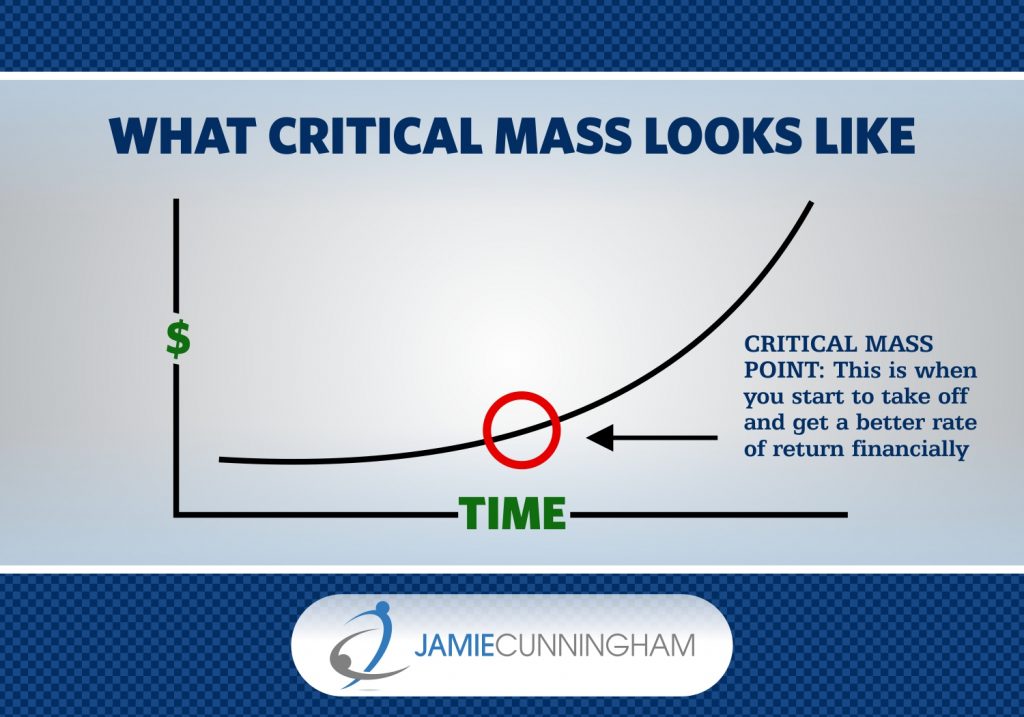So, is business coaching worth it?
We get A LOT of questions about business coaching. Given the relative newness of business coaching as an industry, this isn’t surprising. This makes sense, given how much we’ve been asked, “is business coaching worth it?”
However, we have found that the information can vary widely—shockingly so, in some cases—making it hard to sort out the good from the average.
To help, we’ve rounded up the top 10 questions we get asked, which tend to be variations attempting to answer the question: “Do I need a business coach?”
- What does a business coach do?
- Why hire a business coach?
- How do I know if I’m ready for a coach?
- Is business coaching just for a new business?
- How much does a business coach cost?
- How long will it take to get results?
- How long will I need a business coach?
- Do I need a specialist or a generalist?
- What should I look for in a business coach?
- How do I find a business coach?
This article is intended to answer all the questions we hear people asking about business coaching and hopefully will answer some of the questions you have.
Let’s start with one of the basic questions in determining, “is business coaching worth it?”
What is the purpose of a business coach?
When you are sitting in your office or wherever you make decisions about your business, you are likely doing that either by yourself or with a small group of people who are also within your company.
The level of thinking that probably happens in that space will always be limited by the abilities, beliefs, fears and experiences of those doing the thinking—of which you are one. There may be plenty of good things about the thinking that goes on, but regardless, it’s always going to have blind spots that are influenced by these factors and by the culture of your business.
From your thinking stems decisions which lead to actions that lead to results, and its these patterns which determine the success of your business
So, one of the fastest and surest ways of gaining ground in your business success is to improve the level of thinking that happens around it.
That is where a business coach can pay off in spades.
A business coach is an experienced, objective mind who is not caught up in the emotions of you and your business. They are separate yet honed-in and focused on the achievement of your goals. Where you may see obstacles, they will see a path. Where you see an opportunity, they may be able to point out some pitfalls to avoid in pursuing those opportunities.
Rarely (if ever) do you see a successful business that is the result of one person’s brilliant thinking. It just doesn’t happen. Even the unicorns of our business age, like Steve Jobs or Richard Branson, surround themselves with coaches and other minds to help refine their thinking.
Ok, so a coach can help raise the quality of my thinking and decision making, but, is business coaching worth it overall?
Why hire a business coach?
As a business coaching firm, we’re the first to say that not everyone needs or should have a business coach. There are a few must-haves that need to be present for success ever to occur: a willingness to receive objective feedback, a view to success that embraces change, being two examples. While the reasons for choosing a business coach are too varied to pin down in one blog post, they can all be boiled down to some base experiences:
- You are so stressed about your business that you aren’t sleeping at night
- You see opportunity, but no growth
- You are struggling with cashflow
- You are doing well—too well in fact, and are having trouble keeping up
- You are experiencing a life that’s all work and no play
- Your mental health is suffering
- You want to maximise the value of your business—and then want to sell it
- You aren’t retaining customers, or gaining new ones
- You feel like you’re on the proverbial “hamster wheel” – going at full tilt, but not getting ahead
How do I know if I’m ready for a coach? When is the right time to hire a coach?
There are two parts to this answer. The first is “when can a coach add value to my business,” and the second is “When are you ready for a coach?” both of which need to be satisfied.
Quite simply, a coach can add value to your business when there are things about your business that can be improved. The reality of that is, there is almost always something that can be improved. The goal is to determine if what needs to improve warrants the involvement of a coach. A few common areas where a business coach can add value are:
- Enhancing profitability and or cash flow
- Creating a profit-first budget
- Growing your top line sales.
- Increasing efficiency
- Developing your team
- Improving team communication
- Improving your hiring process
- Helping you grow as a leader
- Gaining more free time and loosening the demands of the business on you
Of course, the level of improvement needs to justify the investment to determine is business coaching worth it. For example, if you were looking to make an extra $20,000 from your business, it would be foolish to invest $30,000 in a coach. However, if you wanted to make an extra $100k, and free up 30% of your time, obviously that investment now makes a lot more sense.
To answer the second part of the question, “Are YOU ready for a coach?”, there are a few more questions to ask yourself.
- Am I open to changing the way I’m doing things?
- Am I open to discovering things about myself that need to change for my business to improve?
- Am I a person of action – i.e. will I follow through on agreements made with my coach?
If the answer to those three questions is yes, you are likely ready for the benefit a coach can bring.
A somewhat related and common question to the one we’ve just answered is:
Isn’t business coaching just for start ups?
Similar to the question above, as long as your business has something that can be improved, it is likely a coach can add value. This is true whether you’re a new start up or a grizzled veteran of entrepreneurship. The part that will change is how often and in what format you engage with a coach, depending on what stage you are at.
In the very early stages of growing your business, one of the most common things people are missing is knowledge around some of the fundamentals in finance, marketing and sales. It’s our opinion that there are more effective ways to gain this knowledge than investing in a coach to work with you one-on-one. And when we say effective, we mean from a learning and investment point of view.
For example – we offer our clients a range of ways to gain knowledge, starting from a guide to improving their business, to online learning, to group programs that not only give you the core knowledge and techniques to apply it but also the education from interacting with other businesses. These kinds of options make a lot of sense, given the investment can be roughly one-third the investment of one-on-one coaching. When you are at a stage where there is not a lot of free cash flow, you need to be wise in how you invest.
Once you are at the stage where you have sufficient core knowledge around finance, sales and marketing, and have applied it successfully, you will hopefully have grown your business to a stage where you need some new skills. These skills will be around creating leverage and freeing you up from some of the activities in which you might find yourself stuck. Skills such as leadership and building a team, creating an effective system that can scale with your business, better planning, how to integrate technology into your business, improve your sales etc.
At this point, it might make sense to invest in a one-on-one coach. As your company grows, you are personally going to find more blind spots within yourself. And given a company can only grow (sustainably) to the level of its leader, your personal growth rate is critical.
And now the biggest question of all …
How much does business coaching cost?
Like any other investment, you’d only make it if there was a high probability of a Return on Investment (ROI). To give this question valid consideration, there are a few points you need to look at when asking is business coaching worth it?
- What do results look like for you?
- Do you know what needs to happen to make that a reality?
I ask these questions because often when business owners think of engaging a coach, they do it because they want something to change in their business but don’t usually have a good understanding of what has gotten them into the situation they are currently in. Or, what is required to make the change. All they know is they want it to change NOW.
That said, it is fine to be unclear about these things, clarity is what of the important benefits a business coach can bring to your business but, while a strong desire for change is essential and helpful, it is critically important to understand the reality of the situation.
As for the level of investment, this is not a straightforward answer. It will depend on what level of engagement you are looking for and the experience of the coach.
Group coaching programs can vary widely in style and size, and you might invest anywhere from a couple of hundred a month up to a couple of thousand a month.
If you opt for one-on-one business coaching, the investment will likely start at a couple of thousand a month and go up from there. And, if you get your team involved with coaching or training, or for specialized issues, things can change from there.
And while the level of investment is important, there are some other factors that are way more important when it comes to choosing your coach. It’s a little bit like choosing a marketing channel. A certain channel may seem very expensive, but when you look at the return, it becomes a no-brainer. Likewise, what can seem cheap if it doesn’t bring results, then it is likely the most expensive choice.
How long will it take to get results?
In some cases, results will flow fast. If a business and its owner are ready, if the groundwork has been laid and things are primed then results can look almost instantaneous. However, if there are things fundamentally broken in the business, or some of the basics just aren’t in place (example: clean financials), there may be some clean-up to do first. If that is the case, there may not be any results (or apparent results) in the short term.
You can see by this point that it is almost impossible to give a general prediction on how fast results will come. It’s kind of like predicting how soon a person would be able to complete an Ironman race if they hire a trainer to help them. It depends on the individual’s current condition and how hard they are willing to work, which brings us to the next factor.
For change to happen and results to flow, it requires work. Engaging with a business coach is by no means a silver bullet for your business. In fact, in some cases, things can get harder in the short term because you may have to do new things in the business to make the changes. A key factor in how long things take is your ability to make change happen. Of course, the coach is going to help make those changes easier by creating a clear path, giving you the tools, guidance, support and accountability BUT—you are the one who has to do it.
It’s exactly the same as hiring a personal trainer. They will help you determine your fitness goals, map out a plan for you, teach you techniques for things you didn’t know, provide support for you and bring the accountability for consistency, but … if you either don’t show up or don’t push as hard as you could, then things will take longer. It’s simple Newtonian physics: Inputs = Outputs.
Along the same theme, as you work on your fitness, you’ll experience different levels of results even when the work you put in seems to remain consistent. There will be times when it feels like your muscle tone changes significantly, then there will be times when it seems to plateau. Results don’t follow a straight line. Sometimes things will take off fast; other times, it is the law of Critical Mass than needs to kick in. Critical Mass states that it can take time for the required mass or force to accumulate before it takes off.

Marketing is a great example of this when asking, ‘is business coaching worth it?’ Most often, effective marketing requires the building of momentum. It’s a rare example of an instantaneous result from the first marketing effort. The best marketing results come from consistent, effective marketing done over time. It’s back to our physical fitness analogy. You don’t go and workout once and then expect a toned body. It requires consistent effort.
And once I see results, how long do I need to work with my coach?
We have some clients that have worked with us for over eight years and others that are much shorter engagements. It always comes back to value. If you are gaining value from working with your coach, you keep going. If you’re not, then it’s time to reassess.
Some of the common reasons you might consider stopping your work with a coach:
- You engaged them for a specific purpose or project, and that project is complete
- You feel you have outgrown your coach (you’d know this as the value you feel you are getting will have diminished)
- You need a different coach who has strengths in different areas (some coaches specialise in a particular aspect of business, like marketing. If you’ve engaged a specialist coach, then likely there will be a need to change once you’ve gained traction in their area of specialty.
Some coaches will use agreements that have a fixed timeframe, others will have a minimum timeframe, and others will be open. This is a conversation to have with a prospective coach and find the format that works for both of you.
That said, it is important to enter into a coaching agreement with full commitment and understanding that results might take time, as outlined above. Having an attitude of ‘dipping your toe in the water’ or a ‘see how it goes’ mentality is a sure path to mediocrity.
In our firm, we use an open format mixed with a candid conversation about expectations.
Specialist or Generalist?
Some coaches specialise in a particular discipline (e.g. systems, marketing, sales), and some are generalists (focus across all the moving parts of the business).
Disclaimer: Myself being a generalist, no doubt what I write here likely contains some bias, both known and unconscious.
Looking at the two very simplistically, a specialist will have very deep knowledge and associated skillset within their domain. They will be across the latest trends and have extensive experience implementing what it is they specialise in. Or at least they should. And there are many areas in which a specialist coach is the right choice.
A generalist, as the name suggests has a good understanding of how all parts of your business need to work together and can help you to know what to work on first and how to get that done. There may be times when your generalist coach will rely on the expertise of a specialist in executing an overall strategy, but a generalist, in theory, should have enough business experience and coaching ability to bring a “bird’s eye view” of all the different working parts of a business, and how they need to work together for success.
Now for some bias J – I do believe you need to be careful when engaging a specialist without the perspective that a generalist might bring. Like hiring a carpenter, everything looks like a nail and can be fixed with a hammer. A specialist will likely be diagnosing a problem through a much narrower window of knowledge than a generalist. And subsequently, may not be able to identify the root cause.
Every business on the planet is made up of four key areas, each having subsections within. Those four key areas need to grow and improve at a rate that keeps rhythm with the rest of the business. For example: if you were to engage a marketing or sales coach to help you grow sales, if you don’t have the systems in place or people to run the systems (or a method for finding good people) then your business is quickly going to become unbalanced.
Imbalance in itself is OK (there is always a level of imbalance in a growing business), but it’s your ability to be agile and make the changes necessary as things grow that matters. Your specialist coach is going to be mostly focused on the thing they are good at and may not have the perception nor willingness to take the focus of the thing they are there to do. With a specialist coach, there is a natural bias to continue to be unbalanced, whereas a generalist coach operates with the bigger picture in mind and will help you to make changes in the context of the overall goals.
On the flip side, the argument for a specialist coach is they are going to have a way deeper skillset and understanding within their domain. And that has value. It comes back to assessing what you need and deciding if you can fulfil the generalist role if you choose to engage a specialist.
The other point on generalists is while they will have a business skillset, they will (or should) also have a good understanding of the psychology and behaviours that may be impacting your progress. Of course, this can also be true of specialists; however, I’d feel safe in saying it is probably less likely.
What should I look for in a Business Coach?
Now that you understand some of the context and mindsets around business coaching, the next steps are to look at the criteria to assess if a particular coach is a good fit for you. This is largely a personal choice but to give you a starting point, here are some things you might want to think about:
- Track record – a good coach will have plenty of success stories to share, and many of those experiences should be relatable to you. (i.e. they’ve successfully helped others in a similar situation and through similar challenges to you.)
- Communication – look for a coach that can speak in relatively simple language. Business is not overly complicated, so the language needs to match. The flip side is a coach that speaks in complex language; either may not know how to distil concepts clearly or is trying to sound more competent than they may be.
- Likability – studies show that in any professional engagement, the quality of the relationship has a direct correlation to results. If you like and respect your coach, you are way more likely to execute on their coaching. The degree to which this point is important will vary on each individual. Some people are more akin to looking past personality differences where, for others, it’s a game stopper.
- Questions – a coach’s best tool. Your coach must be armed with great questions and be willing to ask the tough ones. There will be things about you and your business you’d rather not examine, but which, nonetheless, contribute to your success or lack of it. It’s your coaches’ job to dig these out, and that involves asking the tough questions and doing it in a way that makes you want to say ‘thank you’ afterwards. In this, your coach needs to have tact and compassion. They must readily accept who and where you are without judgement.
- For some other points to consider, check out this blog post – 7 Things to Look for in a Business Coach.
How do you find a great business coach?
As with most services, the best way is to get a referral. If you know someone who’s had success with a coach, ask them, “is business coaching worth it? and listen to what they have to say. Although keep in mind there could be differences in what you need vs. what the need was for your referrer. Allow the referral to be the starting point of your search, not the end.
A professional referral is another way, meaning to ask your other advisors or professionals you trust whom they might recommend. And the same applies here; this is the start of your search, not the end.
And the third option is a good old internet search. It’s easy enough, but the problem with typing “is business coaching worth it” into your search bar, is that your first interaction with the coach is going to be through their marketing, which is, of course extremely scripted and intentional. That’s OK as long as your due diligence goes well beyond the marketing copy, and you get a good feel for the coach’s ability and your fit with their style.
The Bottom Line
When it comes down to it, it’s important to remember that asking, “is business coaching worth it?” will yield different results based on how you ask it, who you ask it to, and what your specific business needs are. Using the questions above as a guide, you’ll be able to ask the right questions, but also dig into your own motivations a little more to determine if business coaching is even a path you need—or are ready to go down.
In the meantime, if you have more questions about asking is business coaching worth it, reach out and contact us. We’re always happy to have a chat and let you know if you actually need a business coach at your stage, and what to do if you’re not in need right now. This leads me to my last point. Look for a business coach who’s not afraid to say, “this might not be what you need right now.” True competence comes from the confidence to lead business owners in the right direction for them, not the one that grows our own client base. So the next time someone says, “Jamie, is business coaching worth it?” Don’t be alarmed if I say, “sure, but not for you.” 🙂




